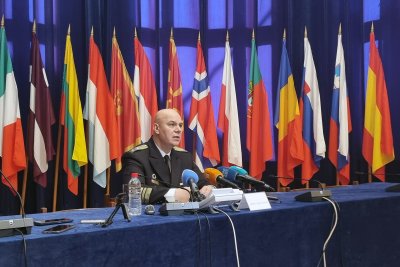Bulgaria’s Prosecutor General, Ivan Geshev, sent letters to the General Secretariat of the Council of Europe, the European Committee on Crime Problems, the President of the European Commission Ursula von der Leyen and the President of the European Parliament Roberta Metsola about the difficulties with the application of the European Convention on Extradition of Bulgarian citizens from the Republic of Serbia, the Prosecutor's office announced on April 13.
It is about actions in the Nexo case investigation. The Prosecutor's Office is investigating extremely serious cross-border criminal offences related to an alleged organised criminal group for money laundering, tax crimes and computer fraud, and damage caused in different countries.
Sofia Prosecutor's Office referred to Chief Prosecutor for lack of cooperation from Serbia for the arrest of two Bulgarian nationals linked to the investigation into the Nexo case
The group operated from the beginning of 2018 until January 12 this year in the country, in the UK and Northern Ireland, Switzerland and the Cayman Islands. Evidence has been gathered so far in the course of the investigations which shows that a number of transactions were carried out in order to avoid the sanctions regime imposed in respect of the Russian Federation.
In the pre-trial proceedings, four persons have been charged, including Kosta Kanchev and Antoni Trenchev.
On 4 April, the Prosecutor's office was informed that the two persons had been circulated as internationally wanted in the Schengen Information System and in the International Criminal Police Organisation - Interpol.
Three days later, information was received from Interpol's national office in Belgrade that the two accused had arrived on 6 April at 23.05 at Belgrade airport on a flight from Dubai. On the same day, on the basis of the European Convention on Extradition, Serbian translations of the requests for international wanted and provisional detention of the accused were sent urgently through Interpol to the Serbian authorities. On 7 April, a fax message was received from the Interpol General Secretariat that the documents had been received.
The letter of the Prosecutor General Ivan Geshev states that Serbia has not fulfilled its obligation under the European Convention on Extradition and has not taken immediate action for the temporary detention of the wanted persons and the immediate notification to Bulgaria of the outcome of the requests sent to the Serbian authorities. This allowed the wanted persons to avoid criminal responsibility in Bulgaria.
The case is unprecedented, such a case of non-compliance with an international treaty in the field of criminal law has not been established in our practice so far, Geshev's letter says.
In the letter, the Bulgarian Prosecutor General asks to initiate urgently the procedure of resolving the difficulties arising in the application of the European Convention on Extradition.










 Чуй новините
Чуй новините Подкаст
Подкаст




















